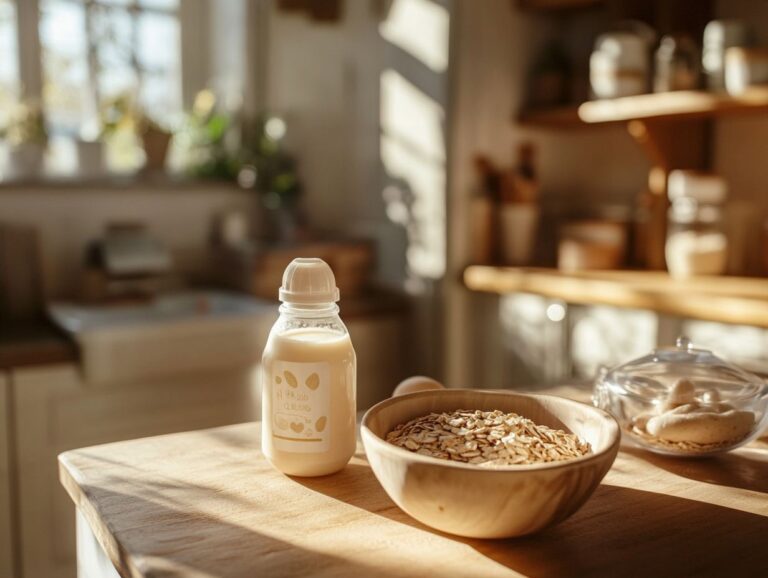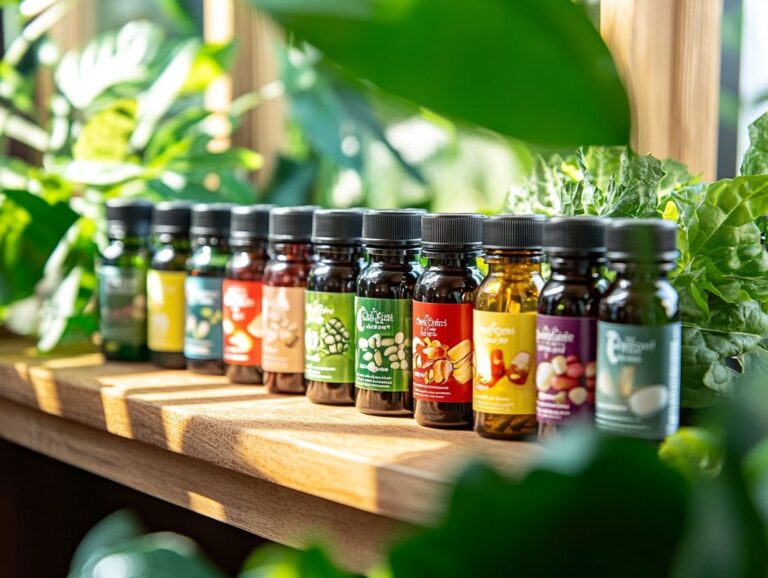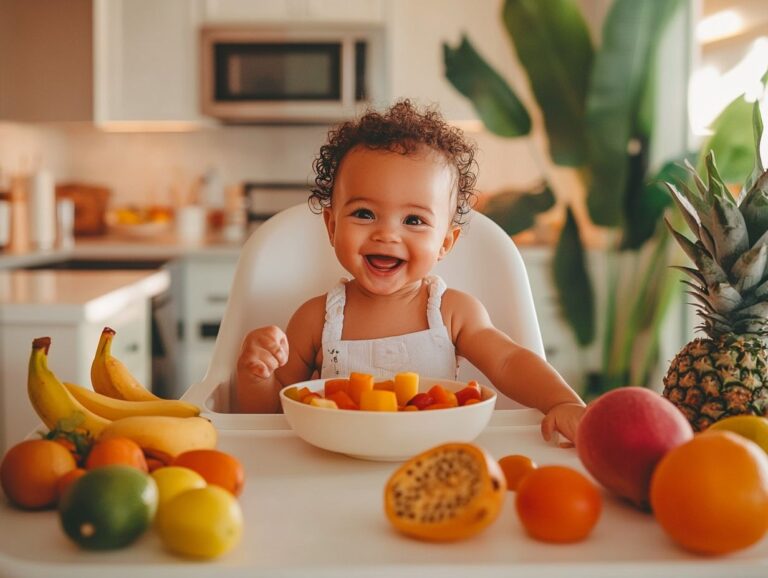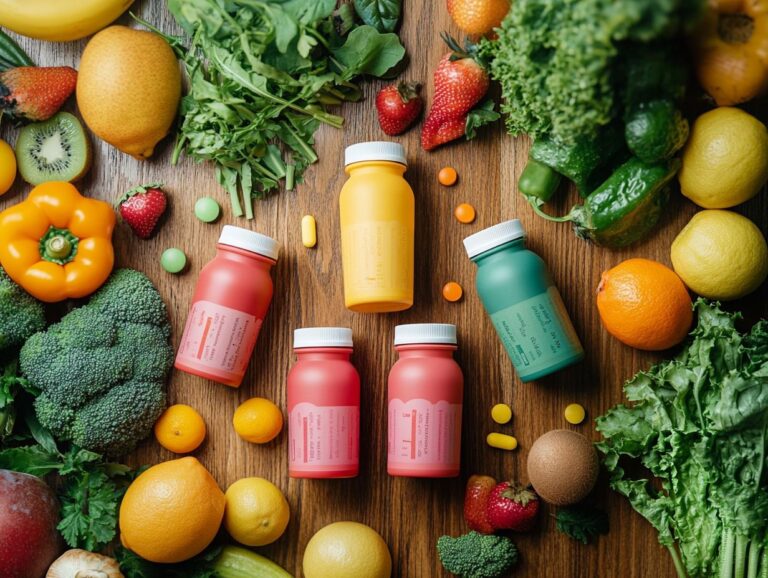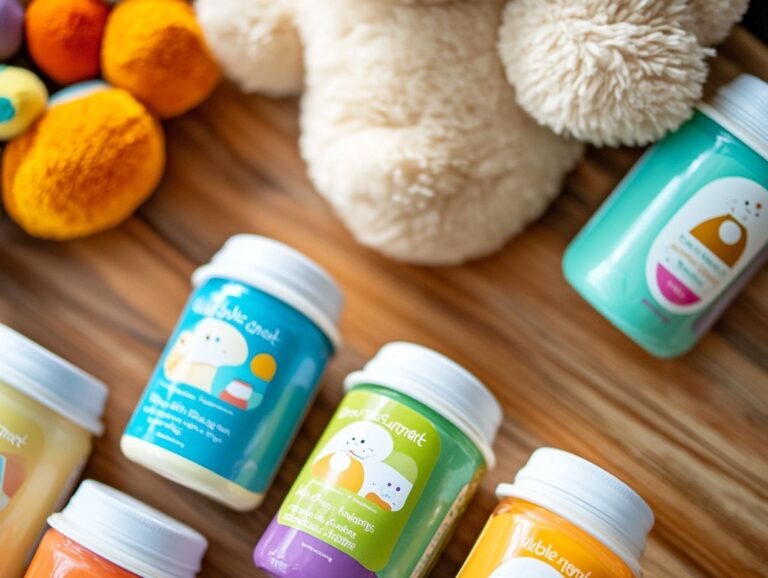This article explores the significance of multivitamins for vegan women, highlights key nutrients they should focus on, outlines criteria for selecting a quality multivitamin, and recommends some of the best multivitamins available for vegan women. It emphasizes the importance of consulting a registered dietitian to ensure that individual dietary needs are met, while addressing potential nutrient deficiencies.
What Are Multivitamins and Why Are They Important for Vegan Women?
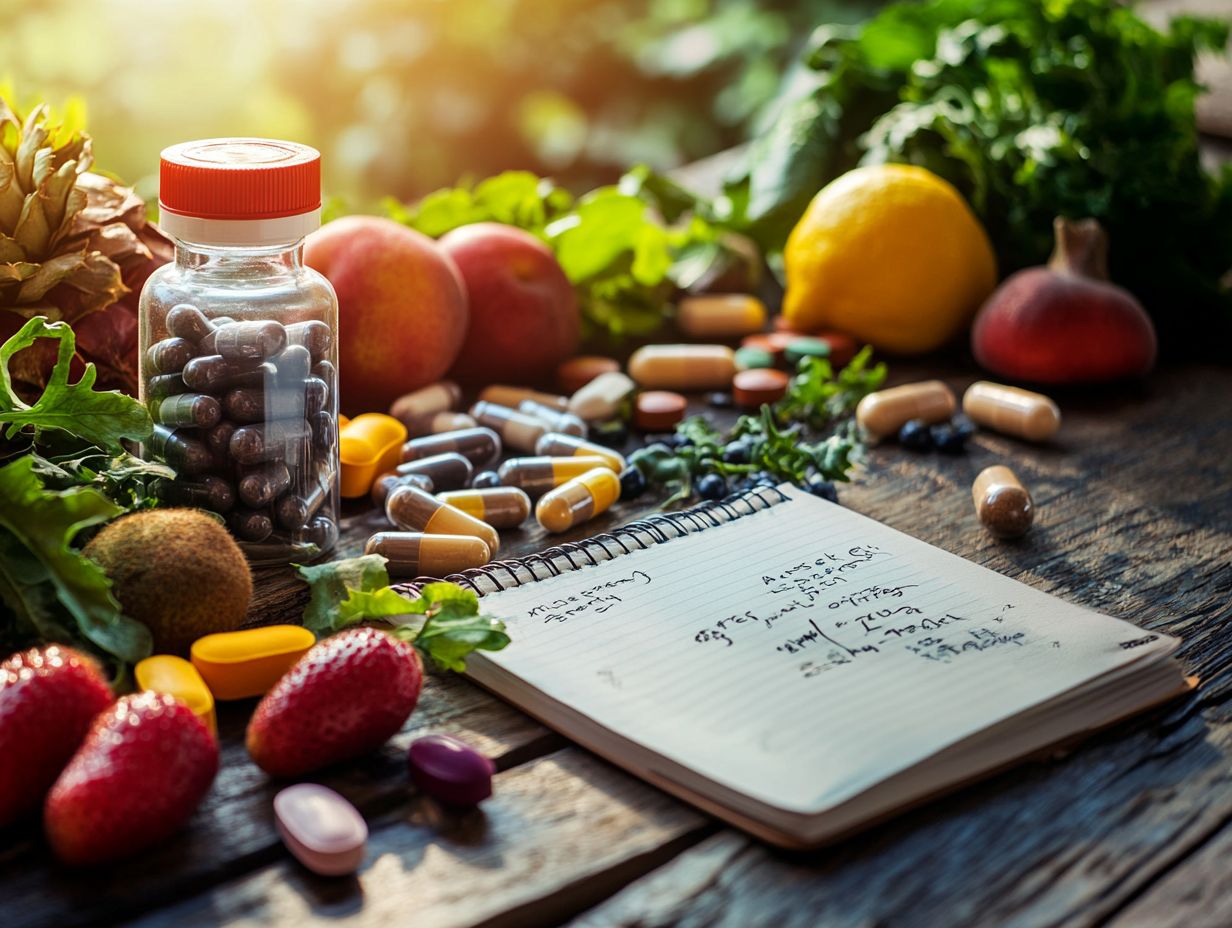
Multivitamins are dietary supplements that include a blend of vitamins, minerals, and other essential nutrients, which are particularly important for vegan women facing unique dietary challenges.
Vegan women often need additional nutrients to meet their dietary requirements and reduce the risk of potential deficiencies that could impact their overall health and immune system function. A well-planned diet, possibly including supplements and fortified foods, is essential to bridge nutritional gaps.
A well-managed diet, supplemented with the right multivitamins, can effectively enhance health and promote longevity.
What Are the Essential Vitamins and Minerals for Vegan Women?
According to the Vegan Society, it is crucial for vegan women to carefully plan their intake of essential nutrients to maintain good health.
Vegan women should pay special attention to certain vitamins and minerals that are often deficient in their diets compared to those who consume meat and other animal products. Key vitamins include vitamin B12 and vitamin D3, while important minerals consist of iron, calcium, iodine, and plant-based omega-3 fatty acids. Additionally, micronutrients such as folate, selenium, and zinc are essential. A quality multivitamin or individual supplements can help address any dietary shortfalls and support a healthy diet.
Vitamins and minerals play crucial roles in the body’s vital functions. For instance, vitamin B12 is necessary for nerve function and the production of red blood cells, which are vital for overall health. Vitamin D3 aids in the mineralization of bones and supports the immune system. Iron is essential for oxygen transport, and a deficiency can lead to fatigue and anemia. Although many plant-based foods contain iron, it often exists in the non-heme form, which the body does not absorb as effectively.
Calcium is necessary for strong bones and is frequently lacking in vegan diets, as many plant sources of calcium have low bioavailability. Omega-3 fatty acids, specifically DHA and EPA, are vital for brain and cardiovascular health, but they are primarily found in algae-based supplements rather than fish oil. Since these nutrients may not be readily available in many plant-based diets, it is crucial to incorporate them through fortified foods or multivitamins.
It is important for vegan women to be aware of this information. Including such guidance in a multivitamin guide can encourage the use of multivitamins and fortified foods, ensuring that all nutritional needs are adequately met.
Why Do Vegan Women Need Multivitamins?
Vegan women may benefit from taking multivitamins, as a plant-based diet can lead to potential nutrient deficiencies due to the absence of essential vitamins and minerals for overall health. These deficiencies can affect energy levels, skin health, and vitality.
While plant-based diets offer numerous advantages, such as high fiber and phytonutrient content, certain key nutrients—like Vitamin B12, iron, and omega-3 fatty acids—may be lacking. Reports indicate that the absorption of these vital nutrients from plant sources is significantly lower than from synthetic sources found in supplements.
By using a multivitamin specifically tailored to their dietary needs, vegan women can effectively address these gaps, enhancing nutrient absorption, boosting mood, and strengthening bones, all of which contribute to overall health. Consulting resources like the Health Guide by ConsumerLab can help in making informed choices.
What to Look for in a Multivitamin for Vegan Women?
The best multivitamins for vegan women possess certain key characteristics. They are formulated with essential nutrients that vegan women should include in their diets, such as vitamin B12, iron, calcium, and omega-3 fatty acids.
Additionally, these multivitamins feature plant-based, bioavailable sources of vitamins and minerals, whether offered individually or as part of a comprehensive multivitamin blend.
1. Plant-based Sources

Vegan women should choose only plant-based multivitamins to align with their ethical beliefs and dietary restrictions. Plant-based multivitamins typically derive their ingredients from whole food sources, making them not only vegan-friendly but also more easily absorbed by the body. Liquid Health and other reputable brands focus on providing supplements in forms that maximize absorption and effectiveness.
Unlike synthetic multivitamins, which may contain artificial fillers and binders, plant-based options utilize natural ingredients such as fruits, vegetables, and herbs. These whole plant sources offer a rich array of phytonutrients and antioxidants, creating a supplement that supports the immune system and promotes overall wellness.
Brands like Garden of Life and New Chapter have established themselves as trusted sources for high-quality plant-based multivitamin supplements designed specifically to meet the needs of women.
2. Iron and Vitamin B12
Iron and vitamin B12 are two essential nutrients that vegan women should prioritize when selecting multivitamins, as they are the vitamins most commonly deficient in individuals following a plant-based diet.
Low iron levels can result in anemia, while vitamin B12 is critical for nerve function and the production of red blood cells, underscoring the importance of adequate intake for overall health.
It is crucial for vegan women to ensure they receive sufficient iron because the primary sources of plant-based iron, known as non-heme iron, are legumes, nuts, and leafy greens.
However, non-heme iron is not as readily absorbed by the body as heme iron, which comes from animal products. The same concern applies to vitamin B12, which is predominantly found in animal-based foods.
Consequently, those adhering to a vegan lifestyle may struggle to obtain adequate amounts without relying on fortified foods or supplements. Symptoms of deficiency can include fatigue, weakness, and neurological issues.
More broadly, a carefully chosen multivitamin can serve as a backup plan to help ensure that individuals do not miss out on essential vitamins and minerals.
3. Calcium and Vitamin D
Calcium and vitamin D are crucial nutrients that should not be overlooked in a vegan diet, especially for pregnant women who have increased dietary needs.
Calcium and vitamin D are essential for maintaining bone health, particularly for vegan women who may have limited dietary sources of these nutrients. Adequate calcium intake is crucial for preserving bone density, while vitamin D is necessary for the proper absorption of calcium.
Therefore, it is important for vegan women to ensure that their diet includes these two vital nutrients. They can seek alternative sources of calcium, such as:
- leafy greens
- nuts
- seeds
- fortified plant milks
which can provide the required amounts. Additionally, exposure to sunlight helps the body produce its own vitamin D. However, those living in less sunny climates or with limited sun exposure may consider taking multivitamins specifically formulated for vegans to address any nutritional gaps.
With proper planning and supplementation, vegan women can strengthen their bone health and overall well-being while maintaining their lifestyle choices.
4. Omega-3 Fatty Acids
Omega-3 fatty acids are essential fats crucial for heart and brain health. However, many vegan women often lack sufficient amounts of these fatty acids in their diets, making it important to find multivitamins that contain plant-based sources of omega-3.
Unlike traditional omega-3s derived from fish, plant-based sources such as algae oil can provide these vital nutrients without compromising vegan principles. These fatty acids play a significant role in reducing inflammation and supporting cognitive function, contributing to overall health.
While vegan sources of omega-3, such as chia seeds, flaxseeds, and walnuts, are valuable additions to any diet, many individuals still struggle to meet the recommended daily intake. This is where multivitamins become essential; by choosing a quality supplement that includes algal oil or other plant-derived omega-3 sources, vegans can ensure they receive the necessary nutrients and benefit from the advantages these essential fats offer.
What Are the Best Multivitamins for Vegan Women?
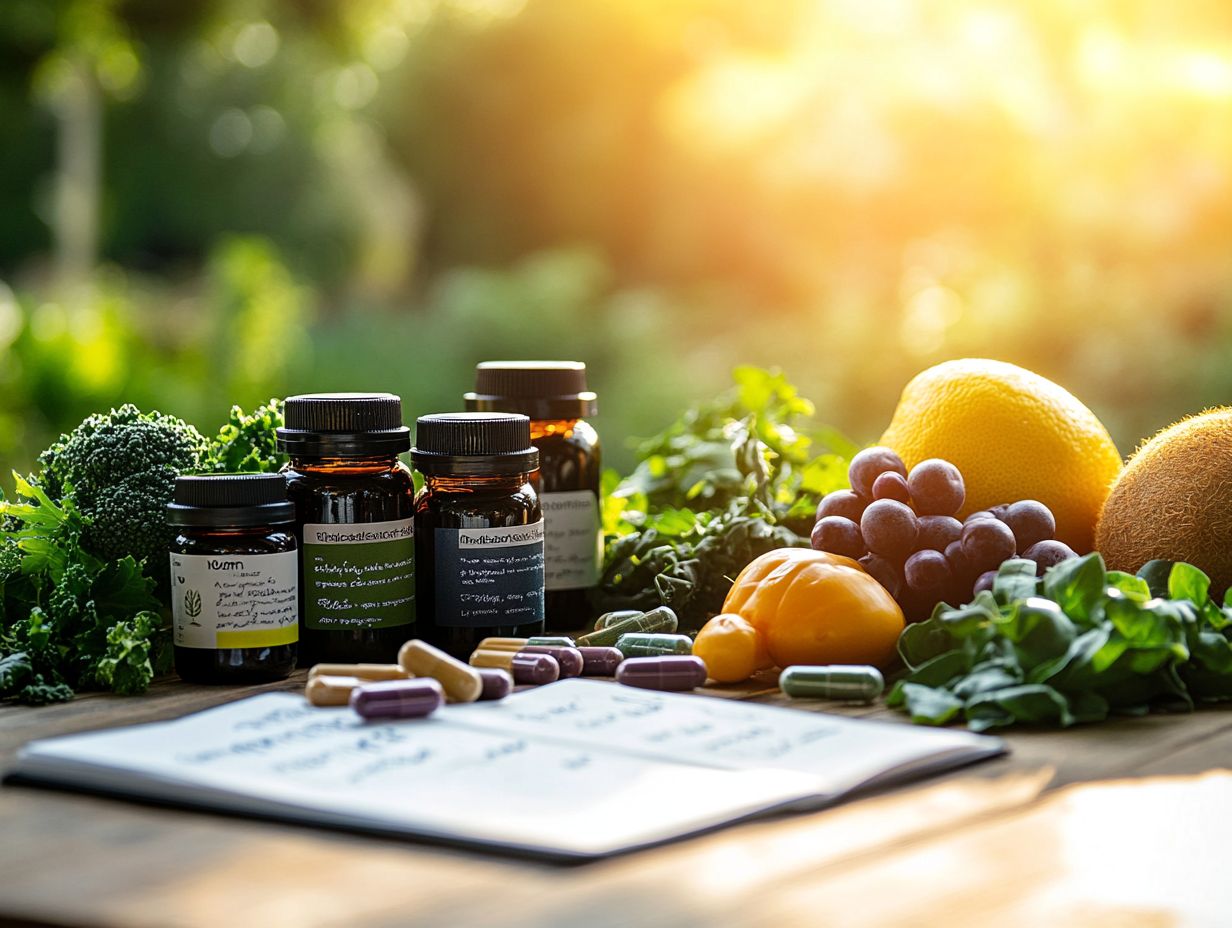
The best multivitamins for vegan women offer a variety of high-quality options that specifically cater to their dietary needs and help address potential nutrient deficiencies.
These multivitamins not only contain essential vitamins and minerals but also include additional compounds designed to support overall health and wellness in alignment with a vegan lifestyle.
1. Garden of Life Vitamin Code Women
Garden of Life Vitamin Code Women is a widely favored vegan multivitamin for women, known for its comprehensive formula that includes whole foods and easily absorbable versions of essential nutrients such as vitamin B12, iron, and calcium.
2. Deva Vegan Multivitamin
Deva Vegan Multivitamin is a highly rated option specifically designed to meet the nutritional needs of vegan women by providing a comprehensive range of essential vitamins and minerals in a single tablet. It has been tested and approved by organizations like ConsumerLab, ensuring its quality and efficacy for vegan dietary needs.
This supplement is both gluten-free and free from common allergens, making it suitable for various dietary preferences. It addresses common nutrient deficiencies often associated with a plant-based diet, including B12, iron, and calcium, which are frequently lacking in vegan diets.
By taking this multivitamin, women can enhance their energy levels and support their immune function. Additionally, it contains antioxidants and nutrients that promote healthy skin and hair, demonstrating that vegan women can prioritize their health and well-being.
With just one capsule per day, it simplifies the process of meeting essential dietary goals compared to taking multiple pills.
3. Mary Ruth’s Organics Vegan Multivitamin
Mary Ruth’s Organics offers a popular liquid multivitamin option that simplifies nutrient intake for those preferring liquid supplements over traditional capsules.
Mary Ruth’s Organics Vegan Multivitamin is a highly regarded clean and natural supplement designed specifically for vegan women who require a broad spectrum of essential nutrients. This product contains key ingredients such as vitamin D3, vitamin B12, omega-3, iodine, and calcium, making it an excellent choice for those looking to enhance their overall health.
Its greatest strength lies in its holistic approach to wellness, which takes into account the dietary needs of women following a vegan lifestyle. Additionally, the multivitamin is free from artificial additives and allergens, featuring easy-to-digest organic ingredients that promote optimal absorption of essential vitamins and minerals, ensuring that nutrient deficiencies are addressed.
Consequently, it provides foundational support as well as emotional well-being, enabling women to live their best lives—a quality that is highly appreciated by many users and recommended by registered dietitians for its comprehensive health benefits.
4. MegaFood Women’s One Daily Multivitamin
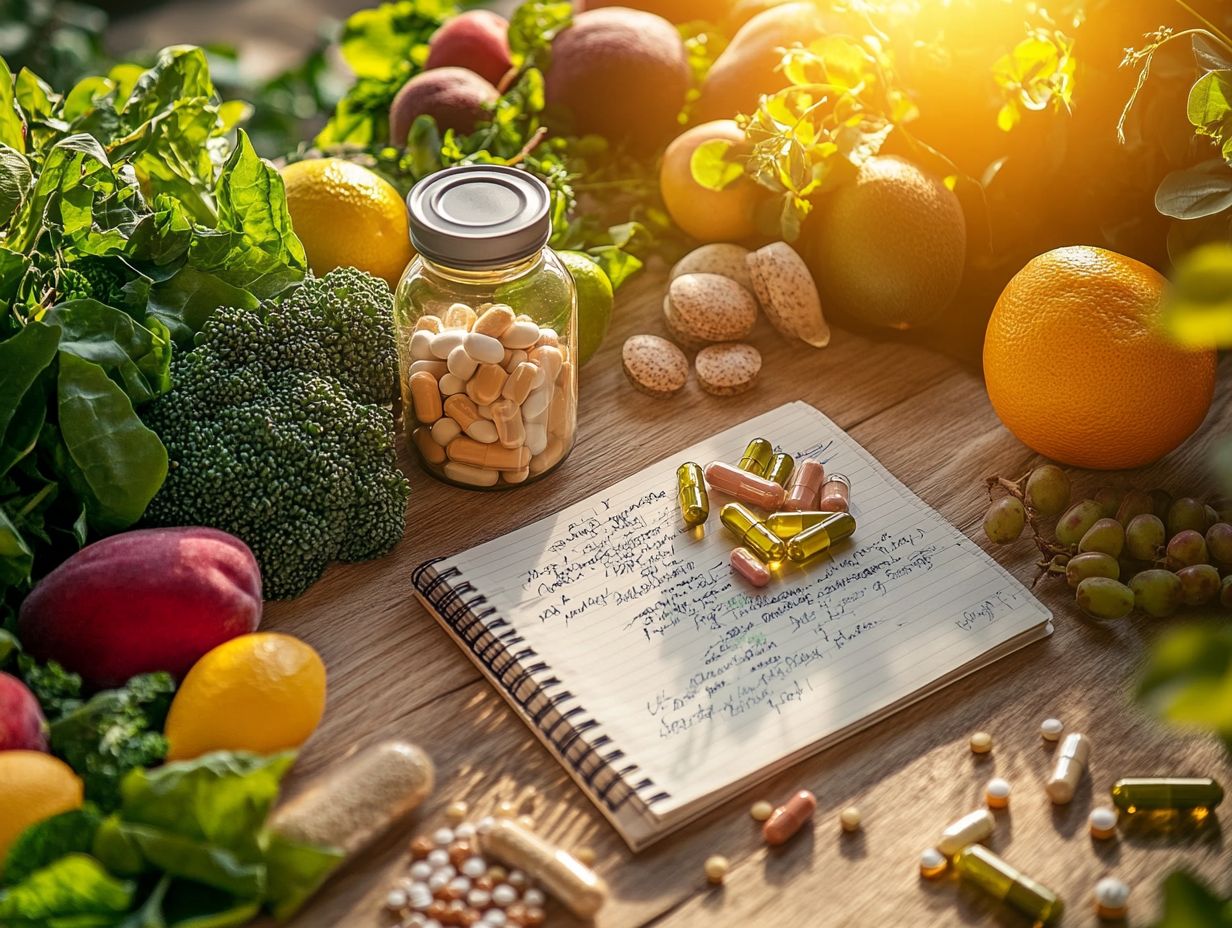
MegaFood Women’s One Daily Multivitamin is a popular supplement designed specifically to support the health of vegan women through its comprehensive nutrient profile, prioritizing whole food ingredients. It is recognized by the Vegan Society as a reliable option for maintaining a healthy diet.
This multivitamin is formulated to include essential vitamins and minerals while enhancing the body’s absorption processes. Unlike many synthetic alternatives, the use of real food sources ensures that the nutrients are more bioavailable and easier for the body to utilize.
Each tablet is thoughtfully crafted to address common dietary gaps that vegan women may experience, such as Vitamin B12, Iron, and Calcium. The inclusion of organic ingredients, such as brown rice and beetroot, not only improves nutrient delivery but also promotes overall wellness.
By focusing on whole foods, this multivitamin enables women to maintain their vibrant health while adhering to a plant-based lifestyle, ultimately providing a reliable foundation for everyday nutrition.
How to Incorporate Multivitamins into a Vegan Diet?
Incorporating multivitamins into a vegan diet is an effective way to meet nutrient requirements by compensating for nutrients that may be lacking in plant-based foods, and can be an essential part of a well-planned diet.
When combined with a focus on whole foods and nutrient-rich meals, multivitamin supplements can help vegan women maintain their health and address any deficiencies that may arise.
1. Focus on Whole Foods
Whole foods are essential for vegan women to maintain a balanced diet and maximize nutrient intake, especially when combined with multivitamin consumption.
Whole foods encompass fruits, vegetables, legumes, nuts, and seeds, all of which are vital sources of vitamins, minerals, and other nutrients that promote overall well-being. These foods are rich in antioxidants, which help reduce oxidative stress and support a strong immune system while also minimizing nutritional gaps.
For instance, leafy greens like kale and spinach are high in iron and calcium, while legumes such as lentils and chickpeas offer excellent sources of fiber and protein. Nuts, including almonds and walnuts, provide healthy fats and omega-3 fatty acids, which are important for brain function.
Regularly consuming these nutrient-dense options can help individuals achieve optimal wellness by ensuring a complete intake of essential vitamins and minerals, thereby enhancing the benefits gained from their multivitamin use.
2. Plan Meals Around Nutrient-Dense Foods
Meal planning with nutrient-dense foods is an effective strategy for women following a vegan diet to enhance their dietary quality and ensure they frequently consume essential vitamins and minerals.
Incorporating nutrient-rich foods such as dark leafy greens, beans, and fortified items in appropriate portions can maximize health benefits. Additionally, multivitamins can help fill any remaining nutritional gaps.
Including a variety of colorful fruits and vegetables, like sweet potatoes, bell peppers, and berries, has been linked to higher antioxidant levels and improved overall wellness.
Whole grains, such as quinoa and brown rice, provide necessary fiber and protein, which aid digestion and promote a sense of fullness.
Healthy fats found in avocados, chia seeds, and nuts contribute to cardiovascular health and assist in nutrient absorption and addressing nutritional gaps.
Thoughtful meal planning with these foods enables those on a vegan diet to create satisfying meals that foster long-term health and well-being while also being delicious.
3. Consider Supplements for Specific Nutrients
Incorporating specific supplements for nutrients that are often lacking in a vegan diet can significantly enhance the health of vegan women and help address potential nutrient deficiencies.
By identifying the most essential supplements, such as vitamin B12, iron, omega-3 fatty acids, and folate, women can complement their multivitamin intake with additional supplements tailored to their specific needs.
This approach ensures that the unique requirements of a vegan lifestyle are met, supporting energy levels, mental clarity, and overall wellness.
For instance, beta-carotene, found in carrots and leafy greens, may also benefit those who eliminate animal-derived nutrients from their diet, particularly during pregnancy when nutrient needs are heightened for pregnant women.
Understanding one’s dietary gaps enables informed decisions regarding both food and supplementation, ultimately leading to improved health outcomes and supporting the immune system.
